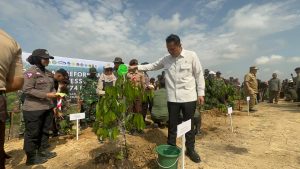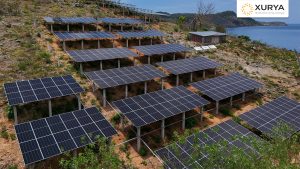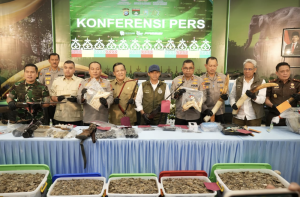Jakarta – 350.org Asia launched REImagine Asia, a campaign for community-led renewable energy that emphasises the need for rich and polluting countries to pay their climate debt so that developing countries in Asia can achieve energy sovereignty.
“Our future is not for sale. Asian governments should not be forced to spend more on US oil and gas when they have committed to phasing out fossil fuels and doubling renewable energy by 2030,” said Chuck Baclagon, Asia Regional Finance Campaigner for 350.org, Thursday, 17 July.
Amid the US tariff negotiations, climate groups warned about trade agreements that would make Asian countries more dependent on US oil and gas imports. Reports suggest that Indonesia has agreed to import USD15 billion worth of US oil and gas to reduce tariffs. Reports also indicate that India plans to increase imports of Liquefied Natural Gas and crude oil from the US as part of the trade agreement.
According to Chuck, a complete abandonment of climate commitments puts billions of Asians at risk of greater climate impacts as the planet approaches the dangerous 1.5°C limit. It also stifles the region’s vast renewable energy potential and undermines sovereignty and long-term energy security.
In the webinar, 350.org Asia launched the REImagine Asia campaign, which highlights success stories of how community-led renewable energy initiatives across the region have resulted in access to clean and affordable energy, climate resilience and improved livelihoods.
Communities in Indonesia have shown that renewable energy can be harnessed to improve people’s lives. With adequate government support and funding, these initiatives can be replicated on a large scale. On the other hand, increased US oil and gas imports will further move us away from the goal of replacing planet-heating fossil fuels with renewable energy.
This goal is key to our survival and the much-needed ‘energy independence’ promised by President Prabowo himself – it must not be abandoned or sacrificed for trade interests,” said Sicily Nurmala Dewi, 350.org Indonesia Team Leader.
Ahead of the COP30 UN climate summit, 350.org Asia announced that groups across the region will take to the streets and join the Draw the Line global mobilisation in September to demand real, bold and urgent climate action from governments.
Omkar Subedi, a Research Fellow at Digo Bikas Institute, spoke about how solar microgrids are improving livelihoods in Dhapsung Village, a highland community in Sindhupalchowk District, Nepal. According to him, energy access remains a significant issue in Nepal.
Having reliable, clean energy is the first step for communities to achieve a better quality of life, says Omkar. “We need a people-centred energy system where people have ownership of climate solutions, not ‘solutions’ created by private companies that profit from power generation.” (Hartatik)
Banner photo: Image generated by OpenAI’s DALL·E via ChatGPT (2024)















